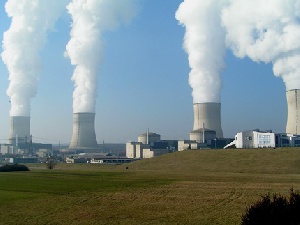Parliament has approved the Nuclear Regulatory bill, 2015, with law-makers optimistic it will help with the management of radioactive waste resulting from civilian application in the country.
The passage of the bill, which is now awaiting Presidential assent, has paved the way for the country to begin processes to generate electricity from nuclear materials.
The Nuclear Regulatory Authority bill, 2015, is aimed at increasing demand for peaceful uses of radioactive materials and radioactive substances in the health and agricultural sectors.
The bill seeks to establish a Nuclear Regulatory Authority to provide for regulation and management of activities and practices in the peaceful use of nuclear material or energy, radioactive material or radiation.
It is also intended to provide for the protection of persons and the environment against the harmful effects of radiation to ensure effective implementation of the country’s international obligations and for related matters.
It also mandates the Ghana Atomic Energy Commission (GAEC) as the sole agency in Ghana responsible for all matters relating to peaceful uses of atomic energy.
The bill also ensures that the GAEC maintains relations with the International Atomic Energy Agency and other similar international and national organisations on matters of research, development of nuclear energy and nuclear technology.
The Nuclear Regulatory Authority bill had inputs from the Minister of Environment, Science, Technology and Innovations, Mahama Ayariga, and technical persons from GAEC. It was first introduced in Parliament on June 17, 2014 -- but in view of some challenges with the bill’s text, it was withdrawn.
Despite proponents recommending nuclear as a good solution to Ghana’s energy crisis, the CEO of the Private Enterprise Foundation (PEF) Nana Osei Bonsu has urged Ghana to proceed with caution with regard to exploring nuclear as an alternative way of generating energy.
According to him, the risks and security measures involved should be looked at before the country goes for nuclear.
The Energy Ministry is therefore targeting 700MW of electricity from nuclear energy in the first phase before increasing it to 1,000MW in subsequent years.
This is to complement the country’s two main energy sources, hydro and thermal electricity. Ghana would be the second in Africa after South Africa to produce electricity from nuclear energy.
Although interest in nuclear energy is picking up, electricity from nuclear energy should not be expected soon since the processes involved in nuclear power production are cumbersome.
Talk of going nuclear has been rife, but Nana Bonsu told the business fraternity at the just-ended Ghana Economic Forum (GEF) that “I am not against nuclear, but I think we should be careful a little bit”.
Government remains committed to the IAEA, and its preparations have led to formulation of the Nuclear Energy Programme Implementation Organisation, under the Ministry of Power, to support the development of nuclear power Ghana.
Nuclear power is unique because of the significantly low cost of electricity generated by it. The nuclear power plants (NPP) would feed the energy-hungry regions as well as provide for significant electricity exporting potential.
Business News of Thursday, 2 July 2015
Source: B&FT













